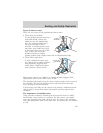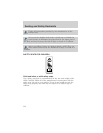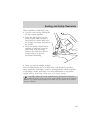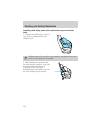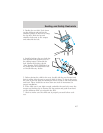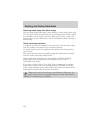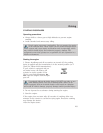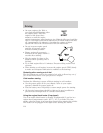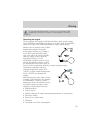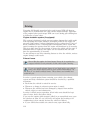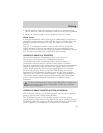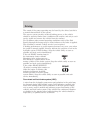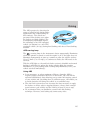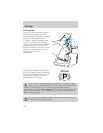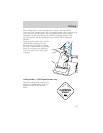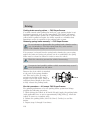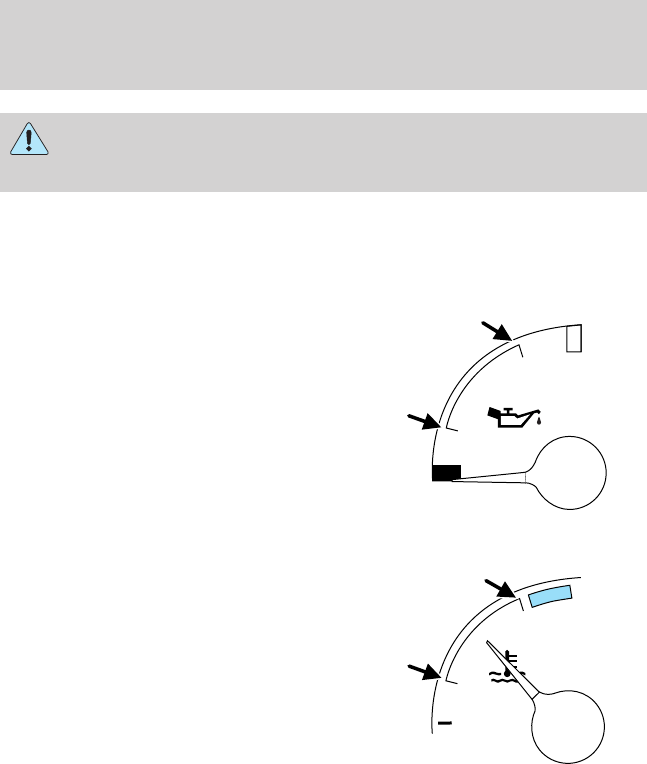
To prevent electrical shock, do not use your heater with
ungrounded electrical systems or two-pronged (cheater)
adapters.
Operating the engine
Do not operate the engine at full throttle below peak torque engine
speed (RPM) for more than one minute at a time (peak torque RPM
varies from 1200-1500 RPM depending on engine rated speed).
Monitor the oil pressure and coolant
temperature gauges frequently.
If the gauges indicate any reading is
not in the normal operating range,
stop your vehicle as soon as possible,
shut the engine off and check the
appropriate fluid level. If an
overheating condition starts to occur,
release the throttle pressure or shift
the transmission into a lower gear, or
both, until the temperature returns to normal operating range.
Continuous operation with low
coolant temperature, below 60°C
(140°F) or high coolant temperature
100°C (212°F) can damage the
engine.
Most failures give some kind of early
warning. Look and listen for changes
in performance, sound or engine
appearance that can indicate service
or engine repair is needed. Some
changes to look and/or listen for:
• Engine misfires
• Loss of power
• Sudden changes in engine operating temperature or oil pressure
• Excessive smoke
• Fuel, oil or coolant leaks
• Vibration
• Increased oil or fuel consumption
L
H
H
C
Driving
111



